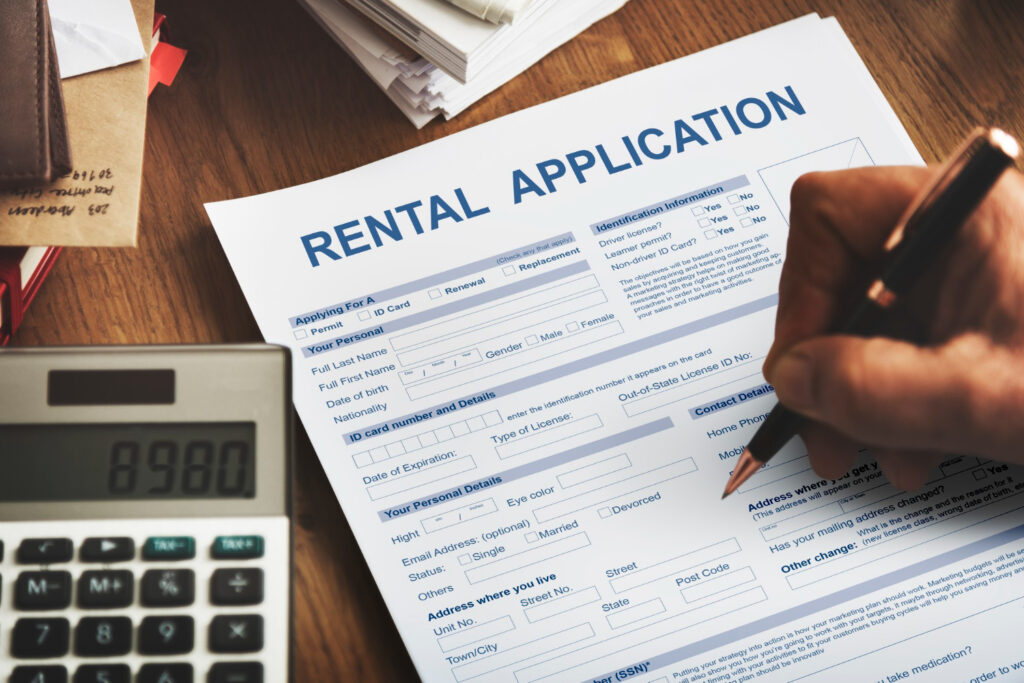Leasing a property is a significant decision, whether you’re a first-time tenant or a seasoned renter. In India, where the real estate market is vast and diverse, leasing a property involves navigating through a mix of legal, financial, and practical considerations. From understanding rental agreements to knowing your rights as a tenant, there’s a lot to unpack before you sign on the dotted line.
This comprehensive guide will walk you through everything you need to know before leasing a property in India. By the end of this blog, you’ll be equipped with the knowledge to make informed decisions and avoid common pitfalls.
1. Understanding the Basics of Leasing
What is Leasing?
Leasing, or renting, is an agreement where a property owner (landlord) allows a tenant to use their property for a specified period in exchange for regular payments (rent). Unlike buying a property, leasing does not transfer ownership but grants temporary possession.
Types of Leasing Arrangements
In India, leasing arrangements can vary depending on the property type and the agreement between the landlord and tenant:
Residential Leasing: For homes, apartments, or flats.
Commercial Leasing: For offices, shops, or industrial spaces.
Long-term vs. Short-term Leases: Long-term leases typically last 11 months (a common practice in India to avoid registration), while short-term leases can be for a few months.
2. Key Factors to Consider Before Leasing a Property
1. Budgeting and Affordability
Before you start your property search, determine your budget. A common rule of thumb is that your monthly rent should not exceed 30% of your monthly income. Additionally, factor in other costs such as:
Security Deposit: Typically 2-3 months’ rent in India.
Maintenance Charges: For apartments, maintenance fees are often charged separately.
Utilities: Electricity, water, gas, and internet bills.
2. Location, Location, Location
The location of the property plays a crucial role in your overall living experience. Consider the following:
Proximity to Work or School: Reduce commute time by choosing a location close to your workplace or your children’s school.
Connectivity: Check for access to public transport, highways, and major roads.
Amenities: Look for nearby markets, hospitals, parks, and entertainment options.
Safety: Research the safety and reputation of the neighborhood.
3. Property Type and Size
Decide on the type of property that suits your needs:
Apartment vs. Independent House: Apartments often come with shared amenities like gyms and pools, while independent houses offer more privacy.
Furnished vs. Unfurnished: Furnished properties are convenient but may come at a higher rent.
Size: Ensure the property has enough space to accommodate your family and belongings comfortably.
4. Legal and Documentation Checks
One of the most critical aspects of leasing a property is ensuring that all legal formalities are in order. Here’s what to look for:
Title Deed: Verify that the landlord is the legal owner of the property.
Encumbrance Certificate: Ensure the property is free from legal disputes or loans.
Approved Plans: For apartments, check if the building has necessary approvals from local authorities.
Rent Agreement: A well-drafted rent agreement protects both parties.
3. The Rental Agreement: What to Look For
The rental agreement is the cornerstone of any leasing arrangement. In India, most residential leases are for 11 months to avoid the hassle of registration (which is mandatory for leases exceeding 12 months). Here’s what to include in your rental agreement:
1. Key Clauses in a Rental Agreement
Parties Involved: Names and details of the landlord and tenant.
Property Details: Address and description of the leased property.
Rent Amount and Due Date: Clearly state the monthly rent and the due date for payment.
Security Deposit: Specify the amount and conditions for refund.
Duration of Lease: Start and end date of the lease.
Maintenance Responsibilities: Clarify who is responsible for repairs and maintenance.
Termination Clause: Conditions under which the lease can be terminated.
Restrictions: Any rules regarding pets, sub-leasing, or modifications to the property.
2. Registration of the Agreement
While 11-month agreements do not require registration, it’s advisable to register longer leases to avoid future disputes. Registration involves paying a nominal fee and visiting the sub-registrar’s office.
3. Stamp Duty
Stamp duty is a tax levied on legal documents, including rental agreements. The rate varies by state but is generally a small percentage of the annual rent.
4. Understanding Tenant Rights and Responsibilities
Tenant Rights in India
As a tenant, you have certain rights protected under Indian law:
Right to Privacy: Landlords cannot enter the property without prior notice.
Right to Essential Services: Landlords cannot cut off electricity or water supply.
Right to Fair Eviction: Landlords must provide proper notice and valid reasons for eviction.
Tenant Responsibilities
Timely Rent Payment: Pay rent on time to maintain a good relationship with the landlord.
Property Maintenance: Keep the property clean and report any damages promptly.
Adherence to Agreement: Follow the terms and conditions outlined in the rental agreement.
Also Read - Why tenant police verification is important? How to do it online?
5. Common Pitfalls to Avoid
1. Not Reading the Agreement Thoroughly
Many tenants make the mistake of signing the rental agreement without reading it carefully. Always go through the document and seek clarification for any unclear terms.
2. Ignoring Property Inspection
Before finalizing the lease, inspect the property thoroughly. Check for:
Structural issues like cracks or leaks.
Functioning utilities like plumbing and electrical systems.
Pest infestations or mold.
3. Overlooking Hidden Costs
Apart from rent and security deposit, there may be additional costs such as:
Parking fees.
Society maintenance charges.
Brokerage fees (usually one month’s rent).
4. Not Taking Photos During Move-In
Document the condition of the property with photos and videos during move-in. This can serve as evidence in case of disputes over security deposit deductions.
6. Tips for Negotiating with Landlords
Negotiation is a key part of the leasing process. Here are some tips to get the best deal:
Research Market Rates: Know the average rent for similar properties in the area.
Highlight Your Strengths: If you have a stable job or good credit history, use it to your advantage.
Ask for Flexibility: Negotiate for a lower security deposit or inclusion of maintenance charges in the rent.
Long-term Lease: Landlords may offer discounts for longer lease commitments.
Also Read - Tenant Issues Related to Owner
7. The Role of Real Estate Agents
While you can lease a property directly, many tenants prefer using real estate agents for their expertise and access to listings. However, keep the following in mind:
Brokerage Fees: Agents typically charge one month’s rent as their fee.
Verification: Ensure the agent is reputable and has verified the property details.
Communication: Clearly communicate your requirements to avoid wasting time on unsuitable properties.
8. Special Considerations for Expats and NRIs
If you’re an expat or NRI leasing a property in India, here are some additional tips:
Local References: Some landlords may ask for local references or a higher security deposit.
Power of Attorney: If you’re unable to be present during the leasing process, appoint a trusted person to act on your behalf.
Tax Implications: Understand the tax rules for rental income if you plan to lease out your own property in the future.
9. Future Trends in Leasing
The Indian real estate market is evolving, and so are leasing trends:
Co-living Spaces: Popular among young professionals and students.
Digital Agreements: Online rental agreements are gaining traction for their convenience.
Sustainability: Tenants are increasingly looking for eco-friendly properties with energy-efficient features.
10. The Role of Technology in Leasing
With the rise of digital platforms, leasing a property has become more accessible and transparent. Platforms like Lets Rentz, a property renting platform, are revolutionizing the way tenants and landlords connect. Here’s how the role of technology comes into the picture:
Verified Listings
Lets Rentz ensures that all property listings are verified, reducing the risk of fraud. This means you can browse through properties with confidence, knowing that the details provided are accurate and trustworthy.
Digital Agreements
Gone are the days of lengthy paperwork and multiple visits to the lawyer’s office. Lets Rentz offers seamless digital rental agreements that can be signed online, making the process faster and hassle-free. This is especially beneficial for those who are relocating from another city or country.
Transparent Pricing
One of the biggest challenges in leasing a property is understanding the total cost involved. Lets Rentz provides clear information about rent, security deposits, and other charges, helping tenants make informed decisions. This transparency eliminates unpleasant surprises and ensures a smooth leasing experience.
Customer Support
Leasing a property can be overwhelming, especially for first-time tenants. Lets Rentz offers dedicated customer support to assist tenants and landlords at every step of the leasing process. Whether you have questions about the agreement or need help with documentation, their team is just a call away.
11. The Importance of Renter’s Insurance
While not yet common in India, renter’s insurance is gaining attention as a way to protect tenants’ belongings. Here’s why it’s worth considering:
Coverage for Personal Belongings
Renter’s insurance protects your personal belongings against risks like theft, fire, or damage. This is particularly important if you own expensive electronics, jewelry, or furniture. In case of an unfortunate event, the insurance will cover the cost of replacing or repairing your items.
Liability Coverage
Accidents can happen, and if a visitor gets injured on your rented property, you could be held liable. Renter’s insurance provides liability coverage, which can help cover medical expenses or legal fees in such situations.
Affordable Premiums
Despite the comprehensive coverage it offers, renter’s insurance is relatively inexpensive. The peace of mind it provides is well worth the small premium you’ll pay. As the concept gains popularity in India, more insurance providers are likely to offer tailored plans for tenants.
Conclusion
Leasing a property in India can be a smooth and rewarding experience if you approach it with the right knowledge and preparation. From budgeting and location selection to understanding legal formalities and tenant rights, every step requires careful consideration.
By following the insights shared in this guide, you’ll be well-prepared to navigate the complexities of the leasing process and find a property that aligns with your needs and lifestyle. Remember, being proactive and informed is the key to making the right decisions.
For those seeking a modern and hassle-free approach to leasing, platforms like Lets Rentz offer a reliable solution. With verified listings, digital agreements, and transparent pricing, Lets Rentz simplifies the journey for both tenants and landlords, making the process efficient and trustworthy. So, whether you’re moving to a bustling metro or a tranquil town, take your time, explore your options, and make a choice that suits your requirements. Happy renting!



